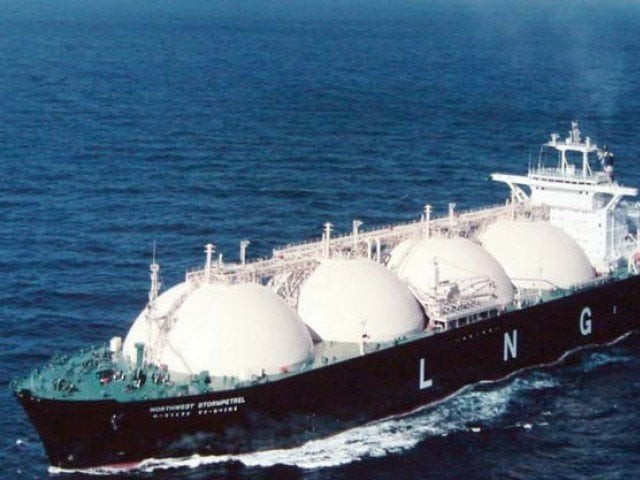CCOE opposes LNG supply guarantee
Insists imported gas supply should be based on competitive market mechanism

The Cabinet Committee on Energy (CCOE) has emphasised that in future the government should not guarantee any liquefied natural gas (LNG) supplies, which should be based on a competitive market mechanism.
So far, the government has guaranteed LNG supplies which has exposed state-run gas companies to financial risk.
Already, a foreign commodity trading company has filed a case against state-run Pakistan State Oil (PSO).
During discussion in a recent meeting of the CCOE, the committee chairman noted that the main challenge in relation to new LNG terminals was the allocation of pipeline capacity, which was a commercial issue.
He stressed that future LNG supplies should not be underwritten/ guaranteed by the government, rather they should be based on a competitive market mechanism.
Meanwhile, the expansion plan for the two existing LNG terminals has hit a stumbling block due to cases in the National Accountability Bureau (NAB) and international court. LNG terminals - Engro Elengy Terminal Private Limited (EETPL) and Pakistan GasPort - were contemplating enhancing their capacities under the third-party access arrangement without any financial obligation or risk to the government.
However, EETPL is facing a NAB case whereas Pakistan GasPort has filed a case in the international court against the termination of an LNG service agreement by the government.
In the meeting, the minister of maritime affairs pointed out that the build, operate and transfer (BOT) period for terminal-I was going to expire soon while terminal-II had gone to the London Court of International Arbitration.
He suggested that the government should not allow expansion of the existing terminals unless the above issues were resolved. EETPL was planning to add 150-200 million cubic feet per day (mmcfd) to the LNG re-gasification and storage capacity. However, pursuant to the federal cabinet decision on negotiations with the LNG terminal owners, it may be delayed till finalisation of the NAB inquiry into the terminal.
The cabinet decision called for negotiations with the LNG terminal companies for rationalising the returns being received by them and did not stop the implementation of earlier Economic Coordination Committee’s decision on third-party access. On the other hand, Pakistan GasPort was planning to enhance its terminal capacity up to 750-900 mmcfd.
However, the dispute in the London Court between Pakistan GasPort and LNG Terminals Limited - which was merged with Pakistan LNG Limited - was a hurdle. During the tenure of previous Pakistan Muslim League-Nawaz government, work on establishing the fourth LNG-based power plant at Trimmu was initiated.
A gas supply agreement and reimbursement agreement were approved in line with the package for three LNG-based power plants.
However, in view of reluctance of the Power Division to agree on minimum guaranteed power purchase, the Petroleum Division was advised to sell 150 mmcfd of re-gasified LNG (RLNG) to K-Electric in order to diversify the financial risk associated PLL’s firm import contracts for 200 mmcfd. PLL has finalised commercial terms with K-Electric for LNG supply and is planning to supply 150 mmcfd to the power utility’s new unit, which is expected to commence operations in December 2021 while RLNG off-take will start in April-May 2021.
Meanwhile, the Oil and Gas Regulatory Authority (Ogra) has granted a licence to K-Electric for construction of a dedicated 1.5km-long pipeline for augmentation of gas supply and pressure.
The Petroleum Division was also pursuing the restructuring of LNG import/ supply chain and as a first step the merger of Pakistan LNG Terminals with PLL came into effect from January 1, 2021. The merger will eliminate separate margins under the existing RLNG pricing structure and reduce the overall RLNG price for consumers.

















COMMENTS
Comments are moderated and generally will be posted if they are on-topic and not abusive.
For more information, please see our Comments FAQ